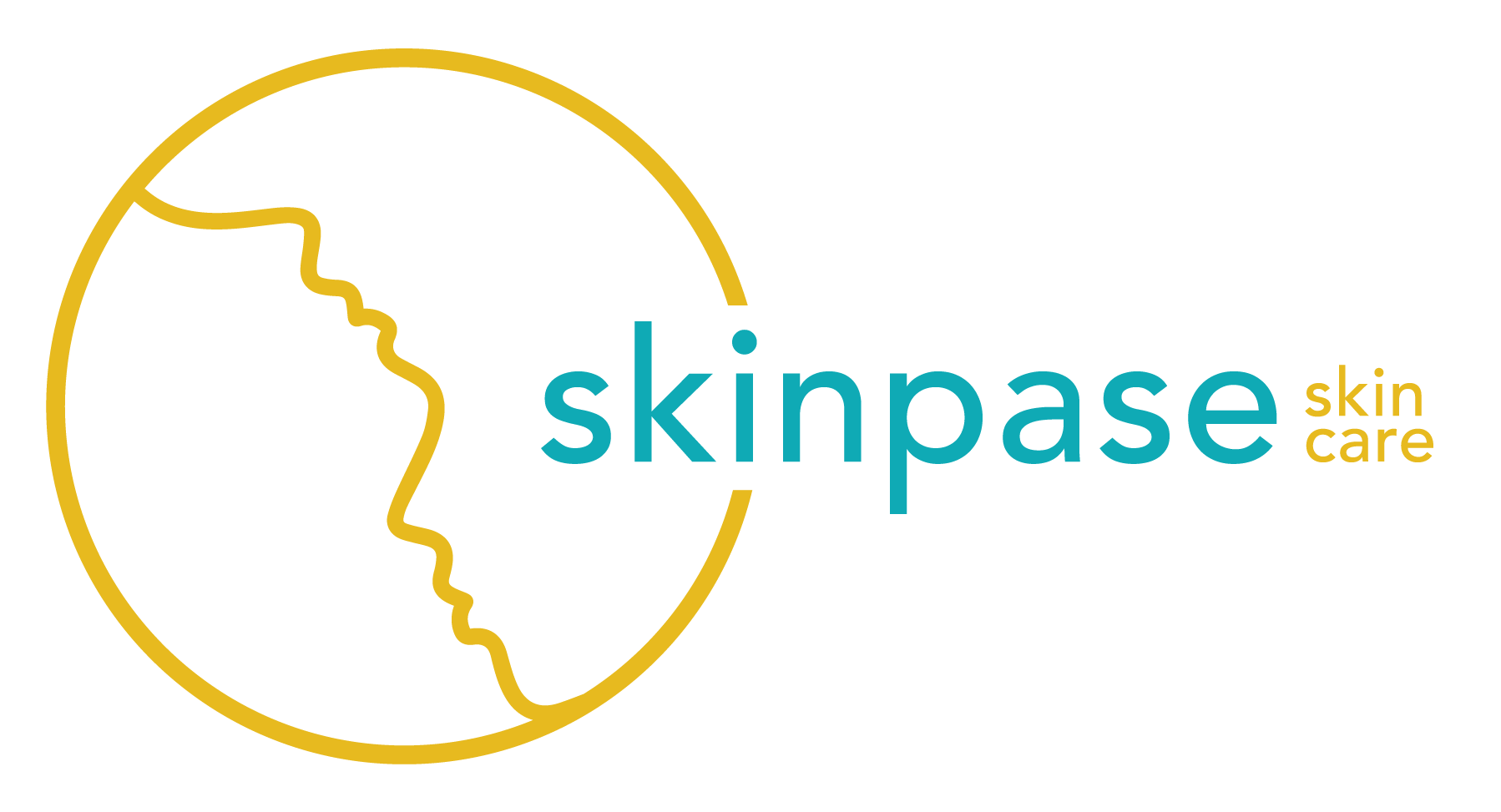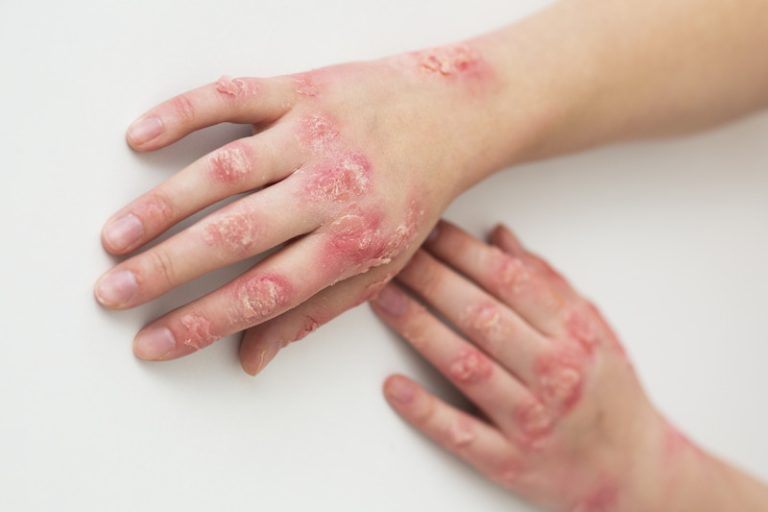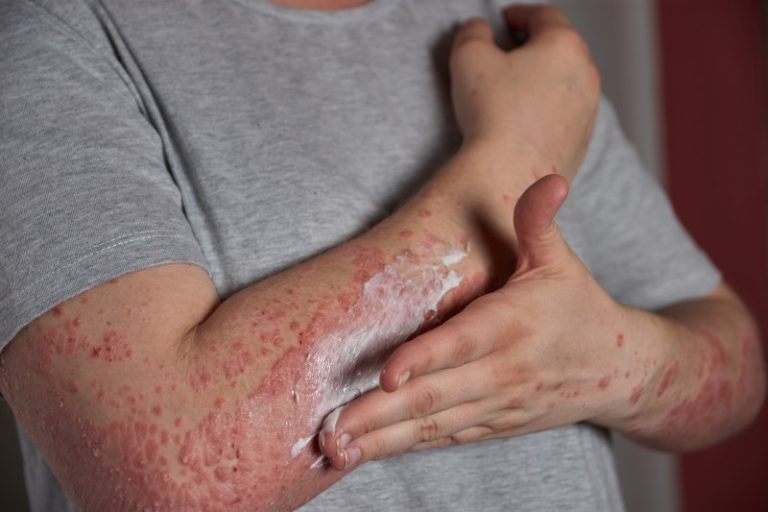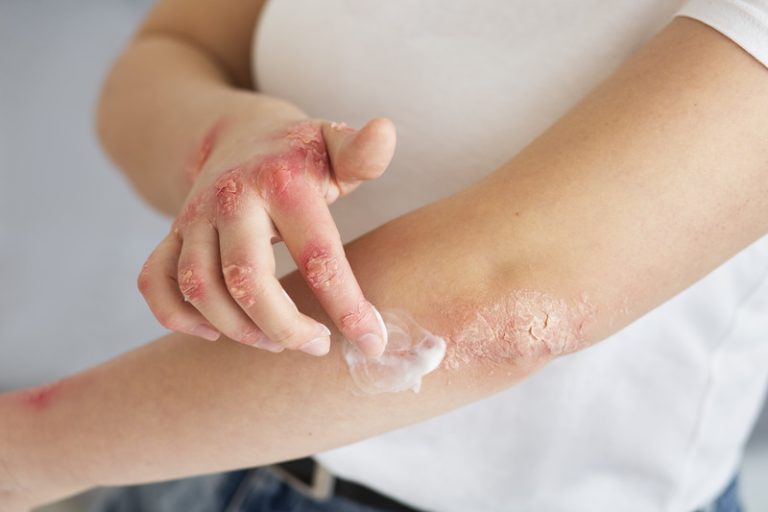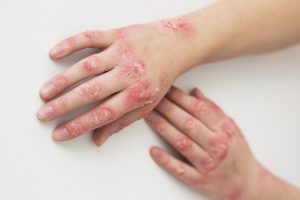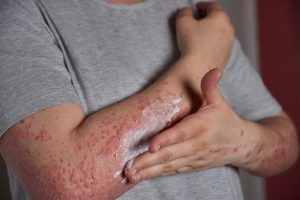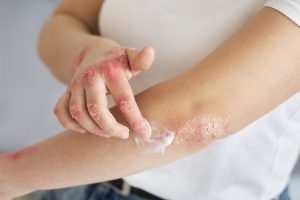Psoriasis Treatment at Skinpase Clinic
What is Psoriasis?
Psoriasis is a non-transmissible inflammatory and chronic skin condition which is characterized by patches of red, scaly, and thick skin called plaques that appears as a result of an excessively quick cell division. Knees, elbows, the scalp, legs, trunk, and nails are typical body parts that are impacted. Typically, the lesions are elevated, white as silver, irritating, and red. Psoriasis comes in many various forms, but plaque psoriasis is one of the most prevalent.
Signs and Symptoms
- Flakes with a pink or crimson hue.
- Psoriasis frequently appears where there has been scratching or abrasion.
- When you try to take the flakes off, a tiny spot of blood is visible.
- Small pits or pinpoint depressions may be present in the fingernails and toenails.
- At the fingertip, onycholysis, or nail separation from its bed, is noticeable.
One must see a dermatologist to confirm the diagnosis since not all cases presenting with the aforementioned signs are psoriasis.
What are the Causes?
- An altered immune system is thought to be the main reason.
- genetic transfer.
- environmental elements
- Smoking
- certain medicines.
- Infection with streptococci
Treatment Plan
Our clinic is a good option for psoriasis treatment. We start with a comprehensive examination after taking a thorough health and personal history. Based on the level of engagement, psoriasis treatment methods may differ. Some of the treatment options are as below:
Topical treatments: Creams, ointments, and gels applied directly to the skin to relieve mild to moderate symptoms.
Phototherapy: Exposing the skin to controlled amounts of ultraviolet light, either from natural sunlight or a special machine.
Systemic medications: These are taken orally or by injection
Biologic medications: It target specific parts of the immune system and can be effective for severe psoriasis.
Before beginning the course of psoriasis treatment, blood tests and skin biopsies will be performed as needed.
It’s important to work with a best skin clinic and dermatologists to determine the best plan for psoriasis treatment, as different treatments may work better for different people and the severity of their condition. In some cases, a combination of treatments may be necessary to achieve the desired result.
Besides psoriasis, our medical dermatology department are efficient enough to address other common skin conditions like skin infections treatment, skin allergies, skin tags removal, acne and keloids.
Frequently Asked Questions
Can psoriasis be cured?
Psoriasis has no known remedy at the moment. However, a whole lot of remedies can assist in symptom control. Topical medications, systemic medicinal drugs, phototherapy, and biologic agents are amongst those treatments. The severity of the situation, the type of psoriasis, and the patient’s clinical records all play a role in the choice of treatment.
How long does psoriasis treatment take?
The severity of psoriasis and the chosen treatment determine how lengthy the process will be. Depending on the treatment, the patient feels comfort as little as a few weeks or so long as numerous months. It is essential to know that psoriasis is a chronic situation for which there may be currently no remedy, despite the fact that treatments can manipulate signs and symptoms and prevent flare-ups. The patient has to continue the treatment for a considerable amount of time, possibly even throughout the patient’s entire life
Are there any side effects of psoriasis treatments?
Yes, some psoriasis treatments can cause slight to excessive side effects.Systemic medications could have greater extreme facet consequences like liver harm, kidney problems, and an accelerated danger of contamination, where as topical medicinal drugs may additionally aggravate or thin the pores and skin. Despite the fact that this condition is normally regarded as a low risk condition, biologic agents may trigger growth of certain forms of cancer.
Is it possible to prevent psoriasis?
There is no guaranteed way to prevent psoriasis. It’s an autoimmune condition that may be triggered by a variety of factors including genetics, environmental factors and lifestyle factors. However, a few lifestyle modifications may assist in reducing the chance of developing psoriasis or reduces the frequency and severity of flare-ups. These include:
- Maintaining a healthy weight
Avoiding triggers which includes smoking and alcohol intake
Managing pressure
Protecting skin from injuries consisting of cuts, scrapes, or sunburns
It is important to note that even as those life-style adjustments may be useful, they may not be a guaranteed factor to prevent psoriasis, and there may be currently no acknowledged way to completely save you the situation.
Latest Blogs
Updated Blogs & News

